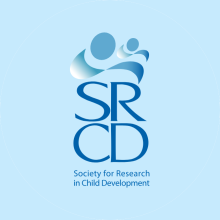May 2010 Spotlight on the SRCD Policy Fellow: Molly Irwin, Ph.D., M.P.H.
2009-2010 Federal Executive Branch Policy Fellow
I’m three quarters of the way through my first year as an Executive Branch SRCD fellow in the Office of Planning, Research and Evaluation (OPRE) in the Department of Health and Human Services’ Administration for Children and Families (ACF). OPRE’s role is to advise the Assistant Secretary for Children and Families on increasing the effectiveness and efficiency of programs to improve the economic and social well-being of children and families. To do this, the office develops and oversees research and evaluation projects to assess program performance and inform policy and practice.
Working in OPRE has provided me an opportunity to use the skills and experiences I brought with me and to learn and develop new skills. It’s allowed me to work with and learn from an incredibly smart and motivated group of people including the staff within OPRE, program staff and policy decision makers in ACF and beyond who rely on the research that comes out of OPRE, and researchers in the field who design the studies and collect and analyze the data to help answer the program and policy questions. My work in OPRE has also allowed me to think about and work on a number of different issue areas and at many points in the research/policy cycle.
I’ve had the opportunity to take primary responsibility in planning an Implementation Research Methods Meeting. In addition to its program evaluation role, OPRE also plays a role setting the research agenda by thinking about important research questions that should be addressed and about the research methods best suited to address them. One question OPRE has been thinking about is how best to study program implementation to understand the role it plays in program effectiveness. Many evidence based programs fail because of poor implementation. And many program staff and policy makers want to know not only if a program works, but why or how it works. This meeting will bring scientists together to discuss the role of implementation research in social and behavioral science and methods for how to best answer implementation questions.
I’ve gotten to work on the evaluation of the Community Healthy Marriage Initiative. The project started in 2003. It is assessing the effects of community wide strategies to provide voluntary skills-based relationship education services to diverse population groups. While this is a content area I’ve not worked on before, it’s interesting to me because it uses a comparison site design to evaluate community-level impacts – something I’m very interested in. Working on this project has given me the opportunity to see a large scale federal demonstration evaluation in progress.
I’ve had the opportunity to review policy briefs based on early waves of data collection and implementation study findings and consider how best to communicate these findings with stakeholders. I look forward to seeing impact study results in the future. I’ve had the opportunity to sit on an Inter-agency Neighborhood Revitalization Working Group. This group is a White House-led interagency collaborative to develop approaches to realize the Obama Administration’s place-based strategy to support local communities. Sitting on this group has given me the opportunity to see beyond OPRE and ACF – to the role that the Department of Health and Human Services can play in conjunction with other executive branch agencies in advancing presidential priorities. It’s also given me the opportunity to take the lessons I’ve learned studying neighborhood effects and think about the role the federal government can play in neighborhood- or place-based approaches.
Finally, I am playing a role in preparing for the next round of research studies to address questions that result from new federal policies. As part of the recently passed health care reform legislation, Congress called for demonstration projects to provide low-income individuals with opportunities for education, training and career advancement to address health professions workforce needs. These demonstration projects will be administered though ACF and call for an evaluation. There will be lots of work over the next few months to help define what questions this evaluation should answer and what evaluation approaches are most promising to address them.
My time here has been fabulous. In addition to the rich experiences I’ve had through my work in OPRE, I’ve also had the opportunity to meet and learn from the group of SRCD fellows, the SRCD staff and policy and communications committee members, and the broader network of American Association for the Advancement of Science fellows and staff. And, I’ve had the wonderful opportunity to live in the nation’s capital and take advantage of the many research and policy events and resources that are here.
These first nine months have flown by – and the next three will go even faster, I’m sure!
